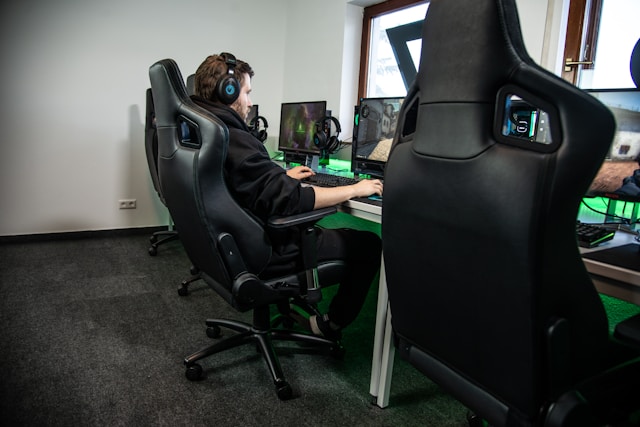Virtual reality (VR) casinos are redefining how players experience online gambling. Unlike traditional platforms, where interaction is limited to chat windows and static avatars, VR casinos allow players to communicate in real time through voice, gestures, and spatial movement. This realistic social layer not only enhances engagement but also shapes player behavior in subtle, measurable ways.
Human interaction has always been at the heart of gambling culture. From poker tables to roulette wheels, the social atmosphere contributes significantly to the excitement. VR technology replicates this environment digitally, blending entertainment with authentic human connection. But this added realism also introduces new psychological and behavioral dynamics that affect how players spend time and money.
The Social Dimension of VR Gambling
The ability to socialize inside a VR casino makes the experience more engaging and immersive. Players can walk around virtual gaming floors, greet others, and observe live reactions to wins or losses. This simulation of a real-world environment transforms online gambling from an isolated activity into a shared event.
In traditional online casinos, anonymity dominates. In contrast, VR platforms encourage identity expression through customizable avatars and voice communication. This sense of presence can increase emotional investment in the game, making both wins and losses feel more intense. Players are no longer just betting against a computer — they’re part of a living, dynamic environment.
| Type of Interaction | Effect on Player | Behavioral Outcome |
|---|---|---|
| Voice chat | Builds social connection | Longer play sessions |
| Avatar gestures | Enhances immersion | Greater emotional engagement |
| Group games | Promotes teamwork or competition | Increased risk-taking |
| Public celebrations | Reinforces status | Encourages repeated play |
Peer Influence and Group Dynamics

In VR casinos, peer influence is a powerful factor. Seeing other players win or celebrate can trigger imitation and riskier betting behavior. This “social contagion” effect mirrors real-world casino psychology, where crowd reactions often drive individuals to bet more aggressively.
However, the same dynamics can also promote responsible gaming. Positive peer norms — such as celebrating moderation or promoting breaks — can help counter impulsive habits. Some VR casinos are experimenting with features that highlight responsible play, like public leaderboards that reward steady, consistent betting rather than large, risky wins.
Emotional Amplification
Social interaction amplifies emotional responses. When surrounded by others, both excitement and disappointment are heightened. This can increase engagement but also lead to impulsive decisions, especially during streaks of wins or losses. Developers must balance realism with player safety by including built-in cooldowns, reminders, or optional social filters.
Group Identity
Players who frequently interact in VR casinos may form social circles or virtual communities. Belonging to such a group can improve retention and make gaming feel more meaningful. Yet, it also increases exposure to peer pressure and comparison, both of which can influence betting habits.
Psychological and Behavioral Impacts

VR’s immersive qualities make social interactions feel genuine, which affects decision-making at a subconscious level. The sense of “being there” makes the rewards and risks feel more tangible than in standard online gambling. This realism can increase both enjoyment and potential vulnerability.
Researchers in gaming behavior note that social presence often extends playtime. Players who enjoy the social atmosphere may continue playing even when they’ve reached personal limits. On the other hand, positive engagement — chatting, watching others play, or exploring the environment — can make the casino experience less about constant wagering and more about social recreation.
Balancing Engagement and Responsibility
The challenge for developers is to use social mechanics ethically. Features like shared achievements, cooperative events, and friend lists can strengthen community bonds without promoting excessive play. Transparency tools — showing time spent, session summaries, and spending limits — help maintain balance.
In the long term, the goal is not only to replicate real casinos but to improve upon them. VR technology allows for environments that encourage responsible gaming, emotional well-being, and social enjoyment simultaneously. When implemented thoughtfully, social interaction becomes a force for engagement and sustainability rather than risk.
